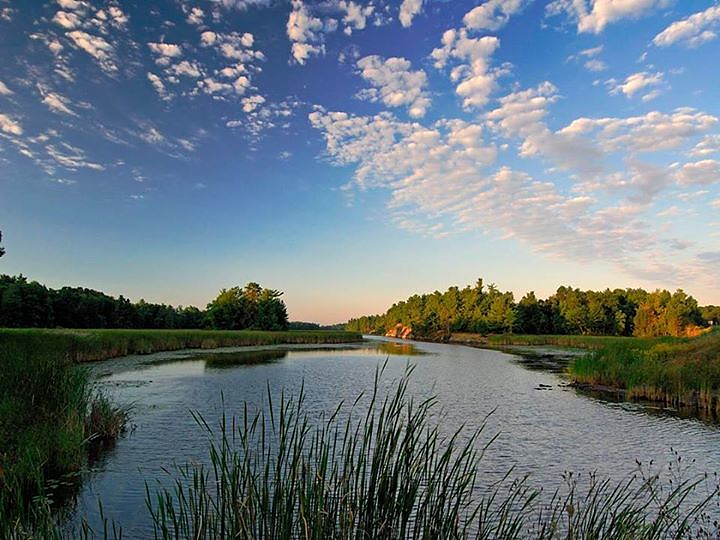
UPDATE: The U.S. Environmental Protection Agency and U.S. Army Corps announced that they are extending the comment period on the proposed first step of the revoking and rewriting of the definition of ‘Waters of the U.S.’ to September 27, 2017. Please take advantage of this opportunity and tell EPA that you oppose any rollback of clean water protections! Submit your comment here.
Scott Pruitt’s Environmental Protection Agency (EPA) just began the first step of eliminating crucial Clean Water Act prohibitions on pollution discharges that have protected our nation’s waterways for more than four decades. Taking marching orders directly from industry wish lists, EPA is planning to gut the Clean Water Act by drastically and illegally reducing the type and number of waterways to which federal public health and environmental protections can be applied. Without federal Clean Water Act protections, industry will be free to discharge untreated toxic, biological, chemical, and radiological pollution directly into water bodies without ensuring their waste will not harm human health or water quality. Waterways will be flooded with higher levels of pollutants, endangering lives and livelihoods around the nation.
EPA’s definition of “waters of the United States” (WOTUS), dictates which waters are protected under federal law by the Clean Water Act. EPA Administrator Scott Pruitt, at the behest of polluting companies, has said that EPA should narrow the definition of WOTUS to only apply to “large bodies of water capable of serving as pathways for interstate commerce.” If he succeeds in doing that, most water bodies in the country would be excluded from Clean Water Act protection – including many, if not most, rivers, lakes, reservoirs, streams, wetlands, and coastal waterways. This will harm the public because, among other things, these waterways are used as drinking water supplies, recreational waters, and fisheries, and uncontrolled pollution discharges will also contaminate larger water bodies as pollution moves downstream.
Without the Clean Water Act’s clear minimum public health and water quality standards, states are unlikely to fill the gap; in fact, states would be more likely to cave to powerful industry interests in a classic “race to the bottom.” For example, Wisconsin is currently considering a bill that would completely exempt FoxConn – a company that drew international attention for reportedly dumping toxic chemicals into rivers in China – from the state’s water protection laws. If the Clean Water Act is gutted, we could see such maneuvers all over the country, leading to industry polluting our waterways with impunity. The impacts will likely be felt most directly in already disadvantaged communities where powerful interests easily influence state and local laws. But, because pollution inevitably moves downstream, waterways and communities downstream from uncontrolled discharges will also become polluted.
EPA is currently taking comments on its plan to withdraw the previous administration’s WOTUS definition, and the administration has made clear that it plans to significantly reduce the waters protected by the Clean Water Act. This comment period will be open until August 28. We need as many people as possible to tell the EPA loud and clear that they oppose any rollback of clean water protections. This week, file your own comment here.
To get you started, we have provided a template that you can use:
I am writing to voice my opposition to the elimination of clean water protections for any waterbody. The Environmental Protection Agency’s (EPA) plan to review and revise its definition of “waters of the United States” (WOTUS) is an attempt to gut the Clean Water Act. It would allow industry to freely pollute water bodies, and lead to widespread degradation of waterways.
Clean water provides many benefits to communities, from safe, affordable drinking water, to recreation and jobs. Eliminating federal clean water protections endangers everyone. Without the Clean Water Act protections that have been in place for more than 40 years, states may allow powerful industry interests to pollute waterways, harming nearby and downstream communities.
Limiting the scope of the federal Clean Water Act also ignores two simple facts: that waterways are connected and pollution moves downstream. If a company is allowed to pollute or destroy a river, lake, stream or wetland, the impacts will be felt downstream – endangering people, fisheries and drinking water. Similarly, just because a stream may flow only seasonally does not mean it does not play an important ecological function, and destroying or polluting it will have widespread impacts. Therefore, I am opposed to limiting the scope of the Clean Water Act to just “large bodies of water capable of serving as pathways for interstate commerce,” and ask that you maintain Clean Water Act protections for historically protected waterways.
People and communities across the country will suffer if the Clean Water Act is gutted by EPA. Meanwhile, the costs of industrial pollution will be forced upon people and communities that will have to deal with the impacts on their lives, health and livelihoods. Reducing clean water protections by redefining WOTUS will not create jobs – in fact, it will imperil jobs that rely on safe, clean water.
[INSERT YOUR PERSONAL NOTE ON WHY CLEAN WATER IS IMPORTANT TO YOU AND YOUR COMMUNITY & WHY YOU THINK THE CLEAN WATER ACT SHOULD APPLY TO MOST WATER BODIES.]
EPA’s goal should be to provide the maximum clean water protections to all communities. I oppose any attempt to rewrite the WOTUS definition to reduce jurisdiction of the federal Clean Water Act from historic levels. I urge you to consider these concerns as you proceed.
Sincerely,
[YOUR NAME]